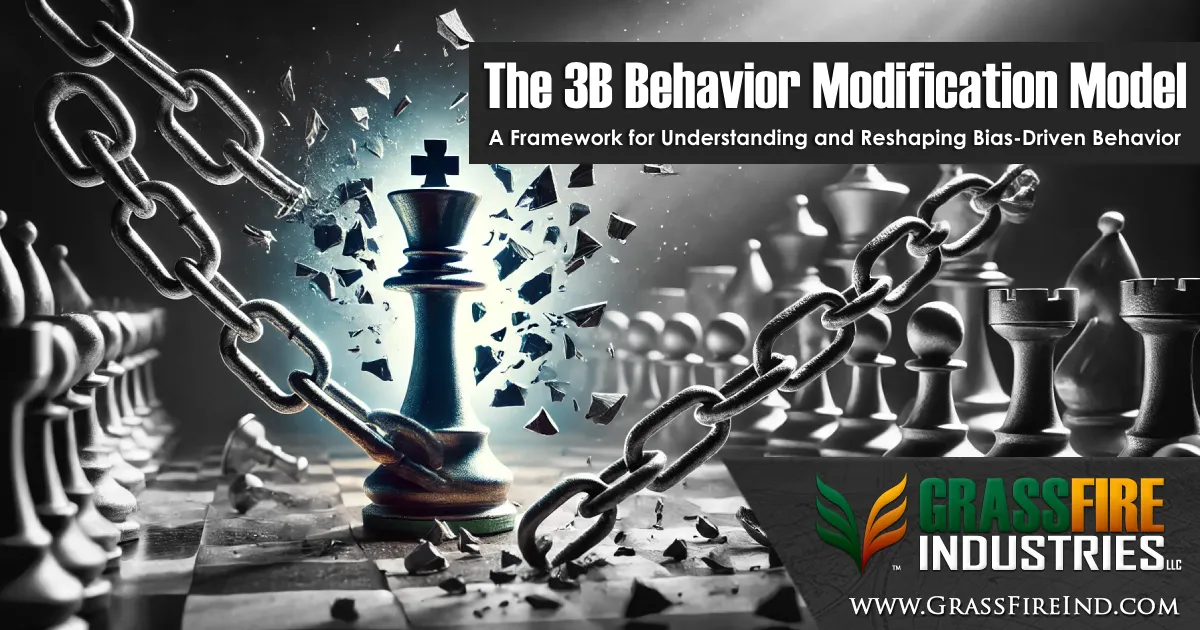
Moving an organization from a management-centric structure to a leadership-driven one requires more than procedural adjustments; it demands a fundamental shift in mindset, culture, operational approach, and talent development. Of course, this transformation is not a simple or immediate process, but it is essential for organizations seeking long-term adaptability, innovation, and sustained success. Let's talk about some of the critical steps to...

ATD (Association for Talent Development) recently outlined three emerging leadership development trends for 2025: personalization, measurable impact, and the cultivation of emotional intelligence for hybrid leadership environments. These are meaningful observations, and I couldn't agree more. Of course, it seems the leadership development field is catching up with ideas that GrassFire operationalized from the beginning. The GrassFire approach...

“Follow your dreams” is an often overused mantra of social media influencers and self-help gurus selling you on a better life. But if it worked, wouldn’t more people be living their best life? The truth is that having a dream or a vision is only a small part of the solution. Remember that heroic tales don’t come from those who dared to dream—they come from those who dared to try. Action is necessary. But before you try to achieve some...

The 3B Behavior Modification Model maps the progression from emotion to bias, bias to belief, and belief to behavior. This manuscript presents a formal, mechanistic framework that illustrates how emotional triggers influence cognitive filters and ultimately shape behavioral outputs. Simulation confirms the model’s predictive reliability across stress and stability conditions. The model serves as a core behavioral engine within the Reasoned...

The advent of social media and search engine algorithms has transformed how individuals consume information. While these tools promise efficiency and personalized content, they also exacerbate cognitive biases by creating echo chambers and filter bubbles. By selectively exposing users to information that aligns with their existing beliefs while filtering out dissenting views, these algorithms reinforce confirmation bias and contribute to...

Communication, as a core competency in leadership, extends far beyond simply speaking or writing effectively. For leaders, communication encompasses a wide spectrum of skills and processes that influence not only how they interact with others but also how they engage with themselves and interpret their environment. Understanding these dimensions is essential for leaders who aim to inspire, align, and mobilize individuals or teams toward a...

No doubt, the world is changing rapidly, and it seems that organizational priorities are shifting. As a result, CEOs and leaders often use this as an excuse when facing the challenge of keeping their teams motivated while maintaining organizational growth. Of course, time is always a factor, and leaders often have to juggle priorities. This typically results in taking shortcuts. However, while these leaders have the best intentions, they...

Most people navigate life through perception, meaning they rely on emotional reactions, impressions, and assumptions to guide their decisions. These responses feel intuitive, but they rarely reflect reality. Emotion-driven decisions are unstable, easily distorted, and often lead to poor or inconsistent outcomes. When uncertainty rises, people default to emotional heuristics most of the time, which means a perception-based life is the norm...

Learned helplessness is a terrible condition where individuals believe they have no control over their circumstances, leading them to stop trying to change or improve their situation. This mindset often develops after repeated exposure to adverse events or environments where efforts to change the outcome consistently fail. Over time, the individual learns to believe that no matter what they do, they cannot influence the outcome, leading to a...

Epistemic Rigidity is a theoretical framework that explains why individuals and groups struggle to update their knowledge and discard outdated information. This framework integrates various cognitive biases, including the Einstellung effect, the Einstein effect, the Dunning-Kruger effect, and anchoring bias. Additionally, it encompasses factors like confirmation bias, motivated reasoning, cognitive dissonance, and heuristics. These biases and...



